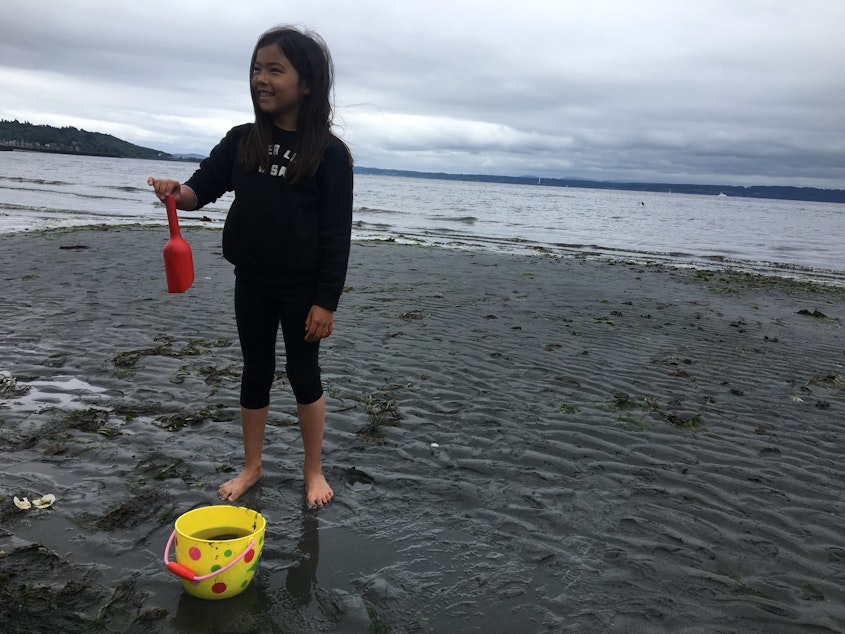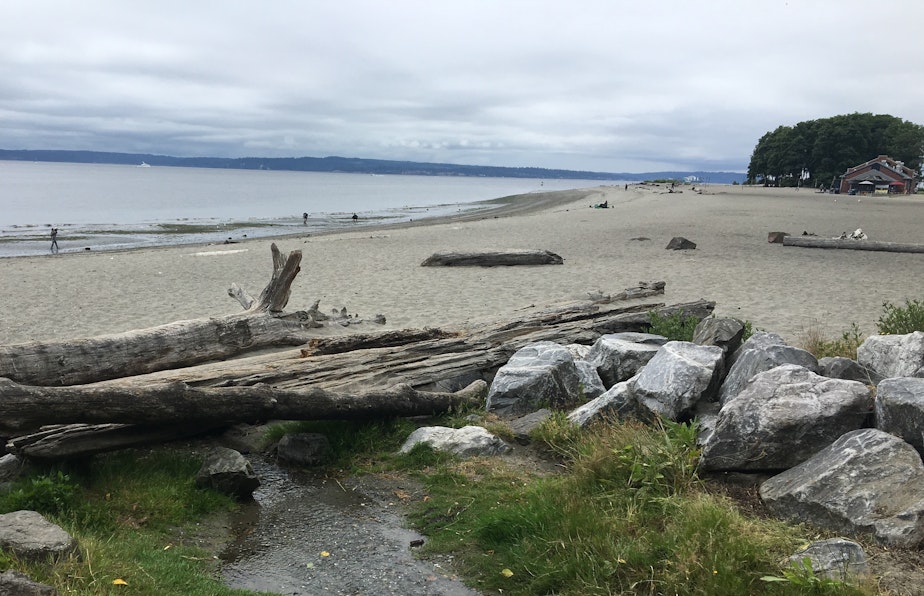Baby wipes, tree roots led to 165,000-gallon sewage spill at Golden Gardens

The beach at Seattle’s Golden Gardens Park reopened to waders and swimmers on Monday.
The water had been off-limits since June 26, after an estimated 165,000 gallons of sewage poured out of a pipe clogged by baby wipes and tree roots, according to Seattle Public Utilities.
Public health officials say tests for fecal bacteria showed it’s safe to play in the water there again.
On Tuesday, after the beach had reopened, Katherine Kang of Ballard and her two kids found jellyfish, squirting geoducks and other sea life in an eelgrass meadow bared by the low tide.
“I found a starfish!” her barefoot daughter, Ruby Gardner, said at the water's edge.
Last week, the family and their guests visiting from Europe were turned away by red warning signs posted all along the water’s edge.
When a reporter informed Kang that baby wipes were being blamed, she was horrified.
Sponsored
“Oh gosh. That is my worst nightmare,” she said. “We try and not use them. Actually, we just throw them in the garbage can. I don’t know if that’s any better.”
She had to explain to her 8-year-old. “You know how mommy doesn’t let you put them in the toilet? The flushable wipes."
Utility officials have long urged people not to flush anything besides human waste and toilet paper down the toilet — even if a product claims to be “flushable.”
“The one person who tries to make a difference, there’s a million others who don’t care about that kind of stuff,” Kang said.

Washington Department of Ecology officials initially told the public the spill was 16,500 gallons, then raised the estimate tenfold the next day.
Seattle Public Utility officials could not say when the pipe that clogged had last been inspected.
The overflow spewed out of a manhole in a ravine west of the 2800 block of Northwest 94th Street, then gushed down a creek and a stormwater pipe before reaching North Beach, immediately north of Golden Gardens.
“Unfortunately, sewage ‘overflows’ into Puget Sound are not a rarity,” Katelyn Kinn with Puget Soundkeeper said in an email. “Each overflow is a setback for an already struggling ecosystem.”
Sewage usually overflows when heavy rains overwhelm antiquated sewer systems, and a soup of waste and stormwater pours freely into streams, lakes and Puget Sound.
While a sewage spill caused by a clot of baby wipes may seem especially gross, the 165,000-gallon discharge at Golden Gardens is a drop in a filthy bucket.
According to Seattle Public Utilities, sewers overflowed 163 times last year in Seattle, spewing 52.6 million gallons into local waters.




